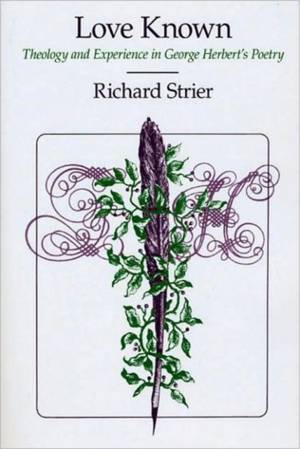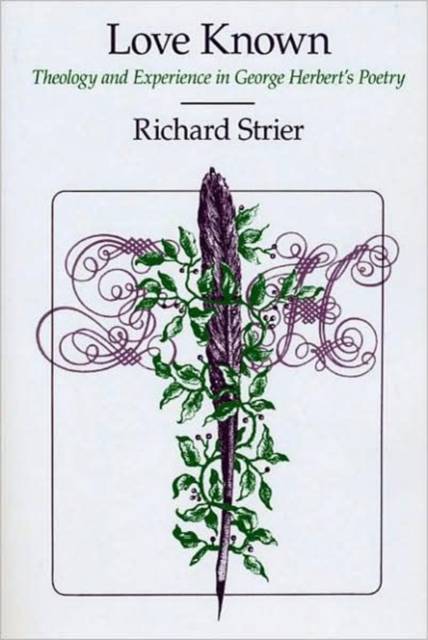
- Retrait gratuit dans votre magasin Club
- 7.000.000 titres dans notre catalogue
- Payer en toute sécurité
- Toujours un magasin près de chez vous
- Retrait gratuit dans votre magasin Club
- 7.000.000 titres dans notre catalogue
- Payer en toute sécurité
- Toujours un magasin près de chez vous
67,95 €
+ 135 points
Description
This book changes the way we read one of the greatest masters of the lyric poem in English. Unlike much recent scholarship on George Herbert, Love Known demonstrates the inseparability of Herbert's theology and poetry. Richard Strier argues persuasively for a strongly Protestant Herbert who shared Luther's sense of the primacy of the doctrine of justification by faith. Cutting across traditional lines, the book is the first sustained study of the theological basis of Herbert's poetry, pointing out connections between Herbert and the Protestant "left" of his own and the following era. In each chapter, Strier closely analyzes a coherent group of Herbert's lyrics to reveal the theological motives of their movements and design. When placed in a theological context, the poems come into focus in a remarkable way: many hitherto puzzling or unnoticed details are clarified, some neglected poems emerge into prominence, and familiar poems like "Love" (III) and "The Collar" take on new cogency. The chapters build on one another, moving from the darker implications of "faith alone," the insistence on the pervasiveness of sin and pride, to the comforting implications of the doctrine, the assertion of the possibility of freedom from anxiety, and the defense of individual experience. Love Known thus offers not only a new historical approach to Herbert, but a new appreciation of the relationship between the psychological realism and human appeal of the lyrics and their theological core.
Spécifications
Parties prenantes
- Auteur(s) :
- Editeur:
Contenu
- Nombre de pages :
- 300
- Langue:
- Anglais
Caractéristiques
- EAN:
- 9780226777177
- Date de parution :
- 15-10-85
- Format:
- Livre broché
- Format numérique:
- Trade paperback (VS)
- Dimensions :
- 152 mm x 229 mm
- Poids :
- 403 g







